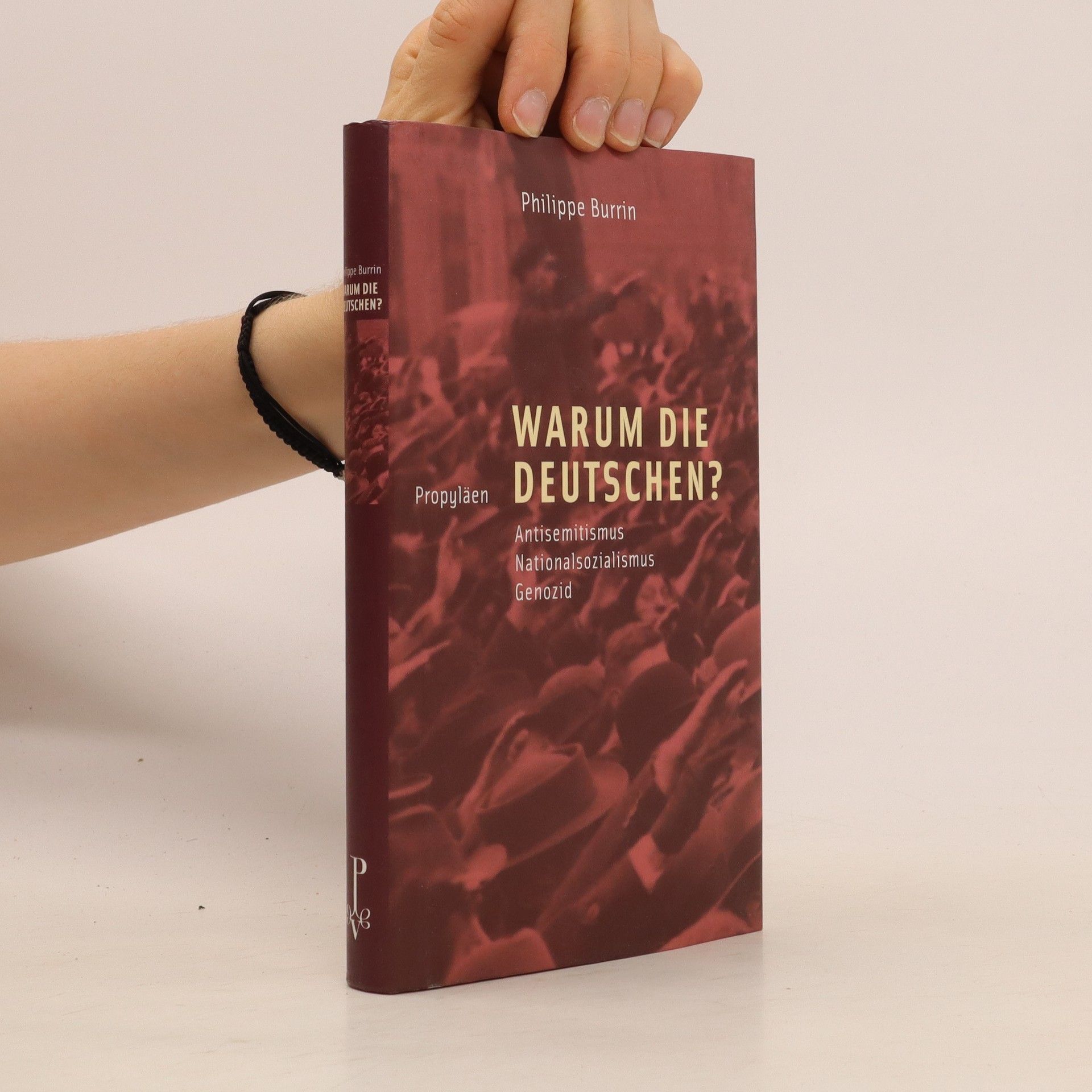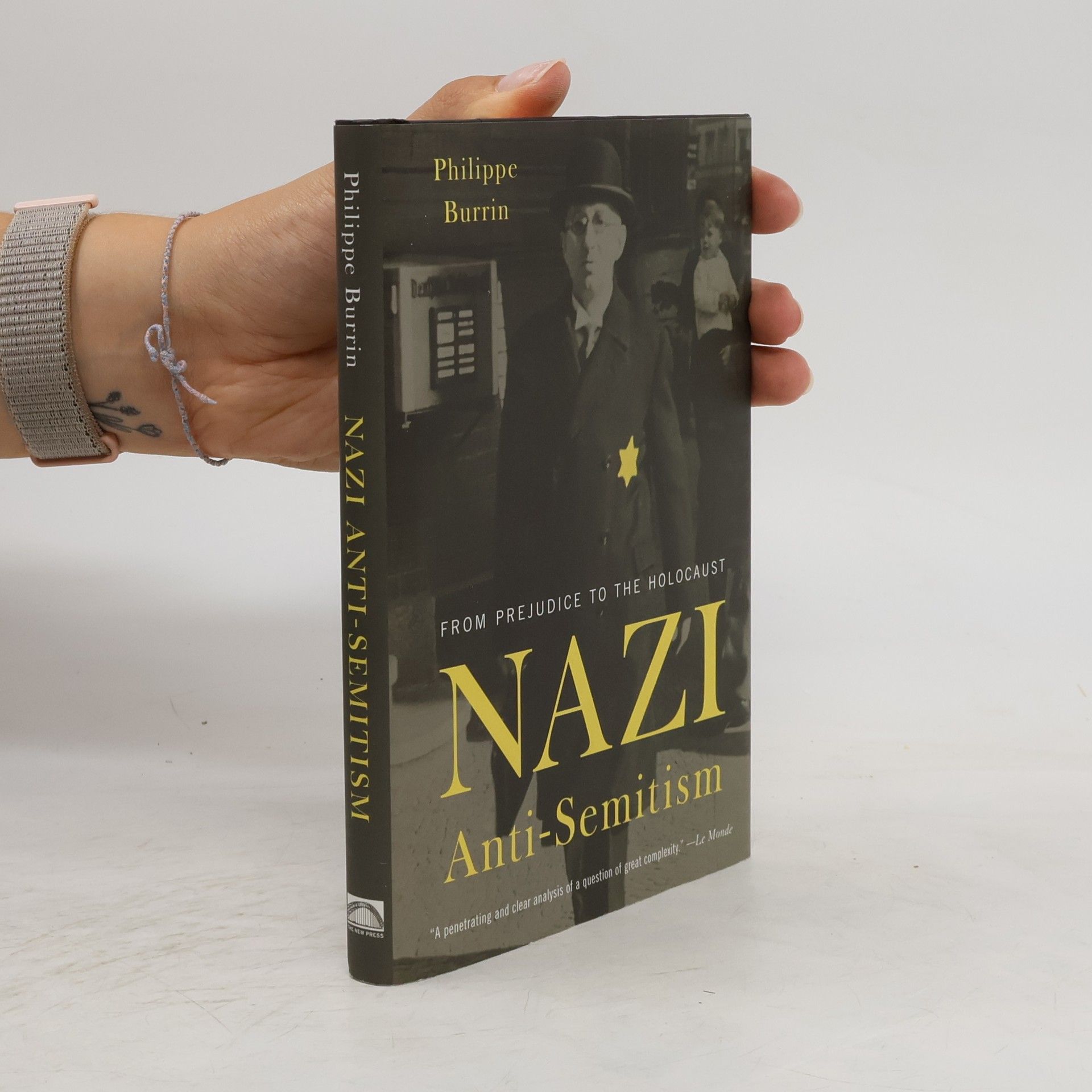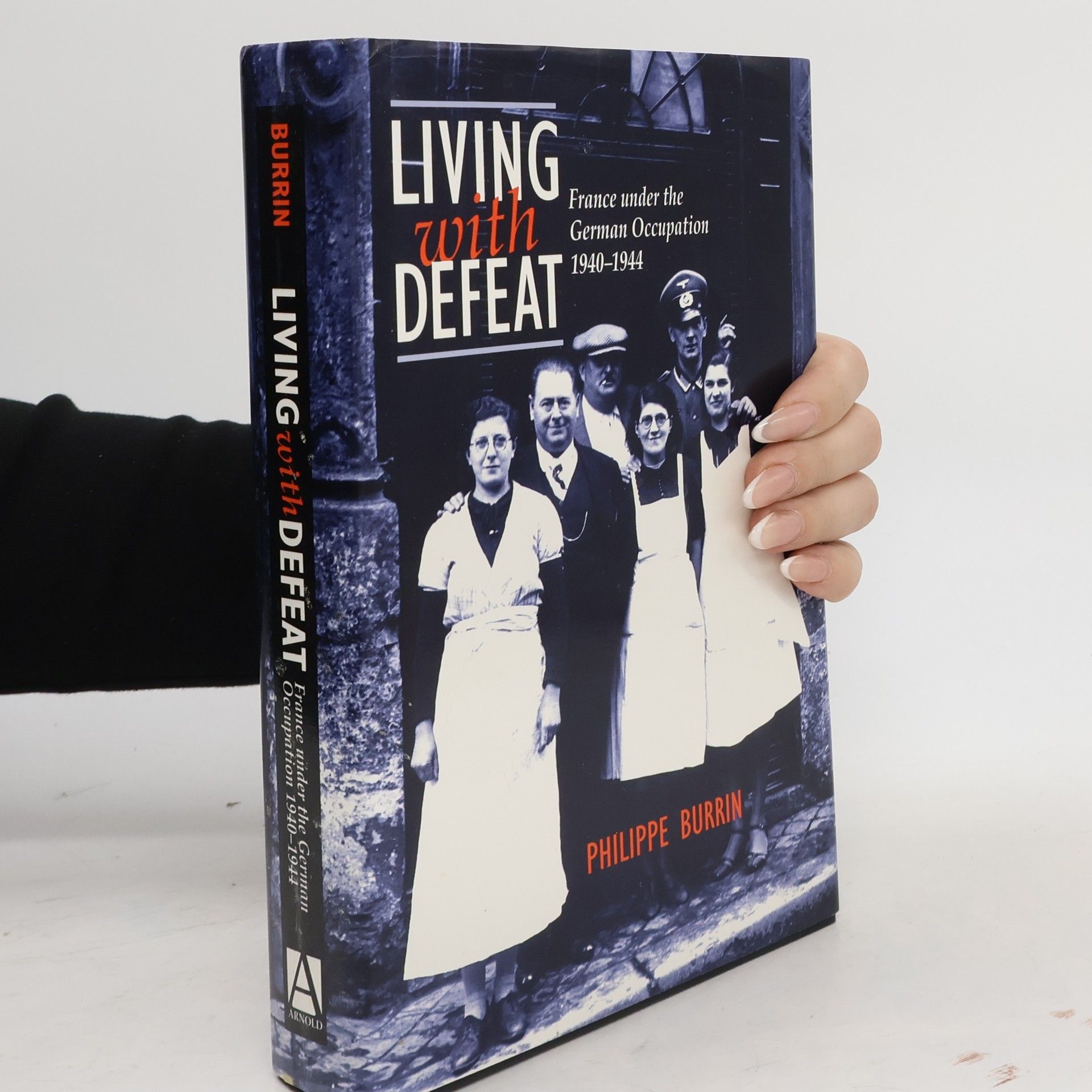From a leading historian of Nazi Germany, a new exploration of the evolution of policies that led to the horror of the Holocaust.One of the continuing puzzles of twentieth-century history is how Germany moved from a kind of anti-Semitism that was despicable, but did not seem exceedingly dangerous, to the Final Solution. This question has been much debated in recent years, and historians have arrived at very different answers.In Nazi Anti-Semitism , Philippe Burrin, one of the leading historians of Nazi Germany, offers a new understanding of the evolution of Nazi thought and policy. Disagreeing with those such as Daniel Goldhagen (author of Hitler's Willing Executioners ) who would condemn the German population as a whole for being inherently anti-Jewish, Burrin presents a more nuanced picture and shows how Nazi policy evolved gradually. How the Germans proceeded from seemingly unthinkable premises to the actual horror of the Holocaust is the story that he tells in this essential book.Burrin's France Under the Germans , published by The New Press in 1997, received widespread praise and has become a seminal work. Already published to great acclaim in France, Nazi Anti-Semitism opens new perspectives in a vital historical debate with continuing relevance.
Philippe Burrin Book order (chronological)




Warum die Deutschen?
- 144 pages
- 6 hours of reading
Nach Jahrzehnten intensiver Forschung und einer unermesslichen Zahl von Büchern zum Thema Holocaust bleiben einfache Fragen übrig: Warum die Deutschen? Warum so reibungslos? Warum der beispiellose Exzess des Genozids? Philippe Burrin, einer der klügsten und angesehensten Köpfe der Holocaust- Forschung, gibt Antwort auf diese Fragen - luzide, schnörkellos, souverän. Die Zeit ist reif für ein solches Resümee.
Living with defeat
- 520 pages
- 19 hours of reading
After stupefying defeat in 1940, the French had to come to terms with the realities of occupation. For four years they adapted in different ways to Nazi rule: some resisting, most submitting and pliant, a fair number seeking some sort of accommodation with the enemy. Occupied France is the first book to look at the whole range of French responses. How did the various elements in French society adapt? It lays bare the patterns of people's behaviour, of collaboration in daily life, whether flaunted or surreptitious - the search for work or for contracts from the Germans, the absorption of German 'ways', going to concerts, conferences or exhibitions organized by the enemy. Placed in this extraordinary predicament, the French had to find a line between the acceptable and unacceptable, make the choice between dignity and indignity, good and bad, consult the image they had of themselves and of their country and consider its interests, their interests. Whether their response to the occupation was hesitant, ambivalent, bloody or debauched, it has remained an open wound, refusing to heal with the passing of time.
Hitler und die Juden
- 205 pages
- 8 hours of reading